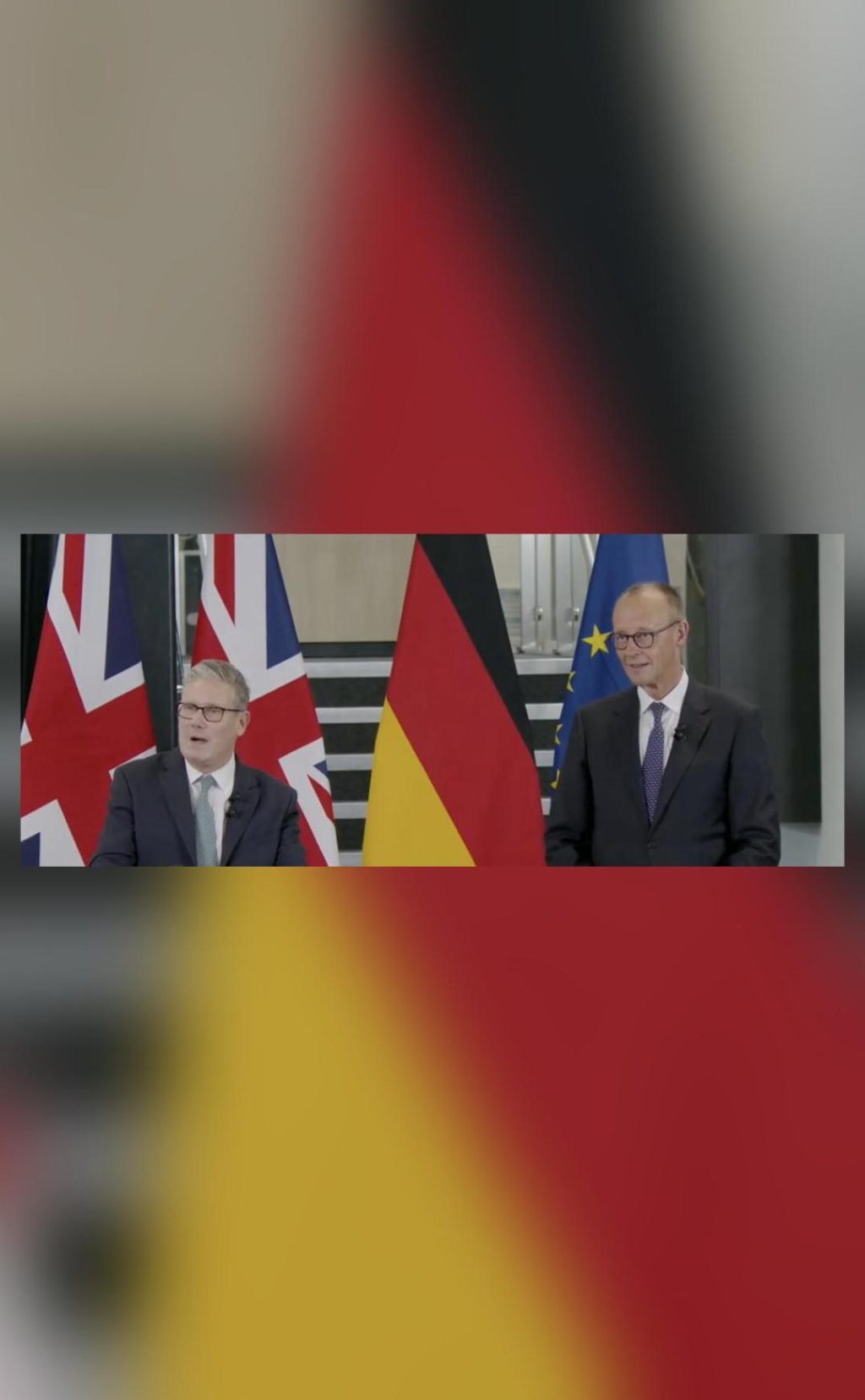
UK, Germany Sign Treaty to Enhance Defence & Migration Cooperation
In a significant move to strengthen bilateral ties, British Prime Minister Keir Starmer and German Chancellor Friedrich Merz signed a treaty on Thursday, marking a major milestone in the history of UK-German relations. The treaty, signed 80 years after the end of World War II, aims to boost defence and economic cooperation, as well as jointly tackle migrant smuggling.
The pact, which was signed at a ceremony in Berlin, is seen as a significant step towards deepening ties between the two nations, which are facing numerous challenges in the face of global threats. The treaty is expected to have far-reaching implications for the defence, economic, and migration sectors, and is likely to have a positive impact on the lives of people on both sides of the Channel.
Under the treaty, the UK and Germany have agreed to strengthen their defence cooperation, with a focus on joint military exercises, intelligence sharing, and the development of new defence technologies. The pact also includes plans to boost economic ties, including the establishment of a new direct rail connection between the two countries.
The new rail connection, which is expected to be operational by 2027, will significantly reduce travel times between the UK and Germany, making it easier for people to travel for business, tourism, and other purposes. The aim is to boost economic and people-to-people ties between the two nations, and to promote greater understanding and cooperation.
In addition to defence and economic cooperation, the treaty also includes plans to jointly tackle migrant smuggling. The pact calls for increased cooperation between the two countries to combat the threat posed by migrant smugglers, who are responsible for the deaths of thousands of people each year.
The treaty is seen as a major victory for the two governments, which have been working towards strengthening their bilateral ties for some time. The signing of the treaty marks a significant milestone in the history of UK-German relations, and is likely to have a positive impact on the lives of people on both sides of the Channel.
A Historic Moment
The signing of the treaty is a historic moment for the UK and Germany, which have a long and complex history. The two countries have been at odds for much of the 20th century, with the UK and Germany being on opposite sides of the conflict in both World Wars.
However, in recent years, the two countries have been working to strengthen their bilateral ties, with a focus on cooperation and mutual respect. The signing of the treaty marks a significant step forward in this process, and is likely to have a positive impact on the lives of people on both sides of the Channel.
A New Era of Cooperation
The treaty is seen as a major step towards a new era of cooperation between the UK and Germany, and is likely to have a positive impact on the lives of people on both sides of the Channel. The pact is expected to boost economic and people-to-people ties between the two nations, and to promote greater understanding and cooperation.
The signing of the treaty is also seen as a major victory for the two governments, which have been working towards strengthening their bilateral ties for some time. The treaty is a significant step forward in the process of deepening ties between the UK and Germany, and is likely to have a positive impact on the lives of people on both sides of the Channel.
Conclusion
The signing of the treaty between the UK and Germany is a significant moment in the history of UK-German relations. The pact is a major step forward in the process of deepening ties between the two nations, and is likely to have a positive impact on the lives of people on both sides of the Channel.
The treaty is a significant achievement for the two governments, which have been working towards strengthening their bilateral ties for some time. The pact is a major step forward in the process of promoting cooperation and mutual respect between the UK and Germany, and is likely to have a positive impact on the lives of people on both sides of the Channel.
Source:



